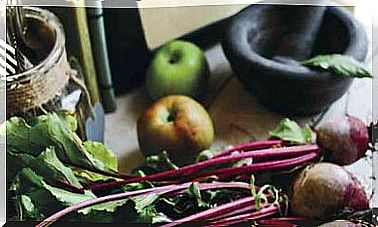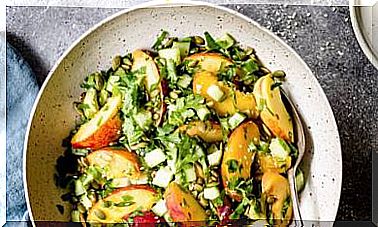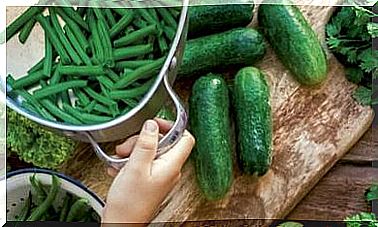My Son Wants To Be Vegan And I Want To Be Healthy
Teenagers can eat a plant-based diet. You just need to know your nutritional needs and incorporate some ingredients into your diet.

Adolescents are hypersensitive to injustice and want to build a better world. That is why more and more adolescents are becoming vegetarians, because they do not want to harm animals and do not want to contribute to climate change. These are the two main motivations and they can defend them with passion, but they often do not worry as much about their healthy diet.
The cultural environment does not help them with an appropriate vegetarian offer, starting with the dining rooms of the educational centers and the fast food outlets that seduce your palate.
Even vegetarian or vegan parents have to make an effort to prepare attractive and balanced menus and for their children to acquire good eating habits.
Parents who are not, moreover, may have doubts as to whether their child will suffer from deficiencies if he goes vegan and will probably have to learn to cook new dishes.
Reliable information on the vagan diet in adolescents
All these issues are addressed by journalist Katia Raffarin and nutritionist Charlotte Debeugny in the book My teenage son is a vegetarian (Editorial Integral).
“There is no doubt that a balanced vegetarian diet can provide adolescents with everything they need for their development,” says Debeugny. Of the same opinion are the Canadian Pediatric Society and the American Academy of Nutrition and Dietetics.
During adolescence, social, psychological and physical changes are experienced. Half of the weight we have in adulthood is gained during adolescence. That is why it is important that adolescents get all the nutrients they need in the right doses.
How to get enough protein
Proteins provide amino acids, the “pieces” that make up body tissues, including muscles and bones. They also participate in the synthesis of hormones and neurotransmitters or in immunity, among other processes.
That is why adolescents, in full physical development, have increased needs compared to adults. As meat and fish are the main sources of protein in the omnivorous diet, in the vegetarian or vegan diet they should be replaced by other foods.
In practice, it means that vegan teens have to consume legumes on a daily basis. Its protein contribution is completed with that of cereals, nuts and seeds.
Take special care in obtaining omega-3s
Although most parents worry about protein, in reality, the nutrient that requires the most attention in the vegetarian diet and especially in the vegan one is the family of omega-3 fatty acids, because its main source is oily fish and there are few plant foods that contain them in significant quantities.
The Spanish Federation of Nutrition, Food and Dietetics Societies indicates that the recommended daily intake of alpha-linolenic acid (ALA, precursor of the other two omega-3s, EPA and DHA) is a minimum of 1.6 g.
To obtain them, it is necessary to resort to the best vegetable sources, which are, in this order: oil and flax seeds, chia seeds and walnuts. Pumpkin seeds, wheat germ or soy also contain it, although in lesser amounts.
To assimilate the omega-3s from flax seeds, it is necessary to crush them. Once crushed they can be spread on salads and other dishes or mixed with liquids to take them as a smoothie. Adequate doses are one tablespoon a day of flax or chia seeds or 6 walnuts.
Some nutritionists advise against relying on ALA to be converted into sufficient amounts of DHA and EPA and recommend taking a supplement made from microalgae.
All the energy they need
Another challenge for vegan teens is getting (with healthy foods!) All the energy their body needs: an average of 3,000 calories a day for boys and 2,500 for girls.
Half of these calories should come from foods rich in carbohydrates. The problem is that the majority of omnivorous adolescents consume an excess of carbohydrates of fast assimilation due to the consumption of sugars in soft drinks, sweets or pastries. They also eat rice and white bread or sugary cereals for breakfast.
Instead of these products they should choose rice and made from whole wheat , legumes and whole fruits, which offer long-lasting energy along with minerals, vitamins and fiber.
You need to take a vitamin B12 supplement
Usable vitamin B12 is found exclusively in foods of animal origin. Vegetarians who consume milk and eggs, in principle, could get the dose they need, but at the cost of excessive consumption of these foods of animal origin.
Nutritionists consider it an obligation that both lacto-ovo vegetarians and vegans take a vitamin B12 supplement (a weekly dose of 1,000 mcg of cyanocobalamin). This vitamin is essential for the proper development and functioning of the nervous system.
Important essential minerals for teens
Plant foods easily provide all other vitamins and minerals. But for an adolescent, calcium (up to 40% of bone mass is acquired during puberty) and iron are important, especially in the case of girls due to the onset of menstruation.
Other minerals that can become deficient are iodine and zinc. Iodine – essential for the functioning of the thyroid, which produces hormones essential for growth – is obtained by using iodized salt in the kitchen and occasionally including small amounts of seaweed in dishes. Zinc – essential for immunity and the development of the reproductive system – is found in pumpkin seeds and wheat germ.
It is not difficult to acquire the minimum knowledge necessary to prepare balanced menus for a vegetarian teenager. In fact, by becoming vegetarian, many adolescents and their families have the opportunity to improve their diet.









